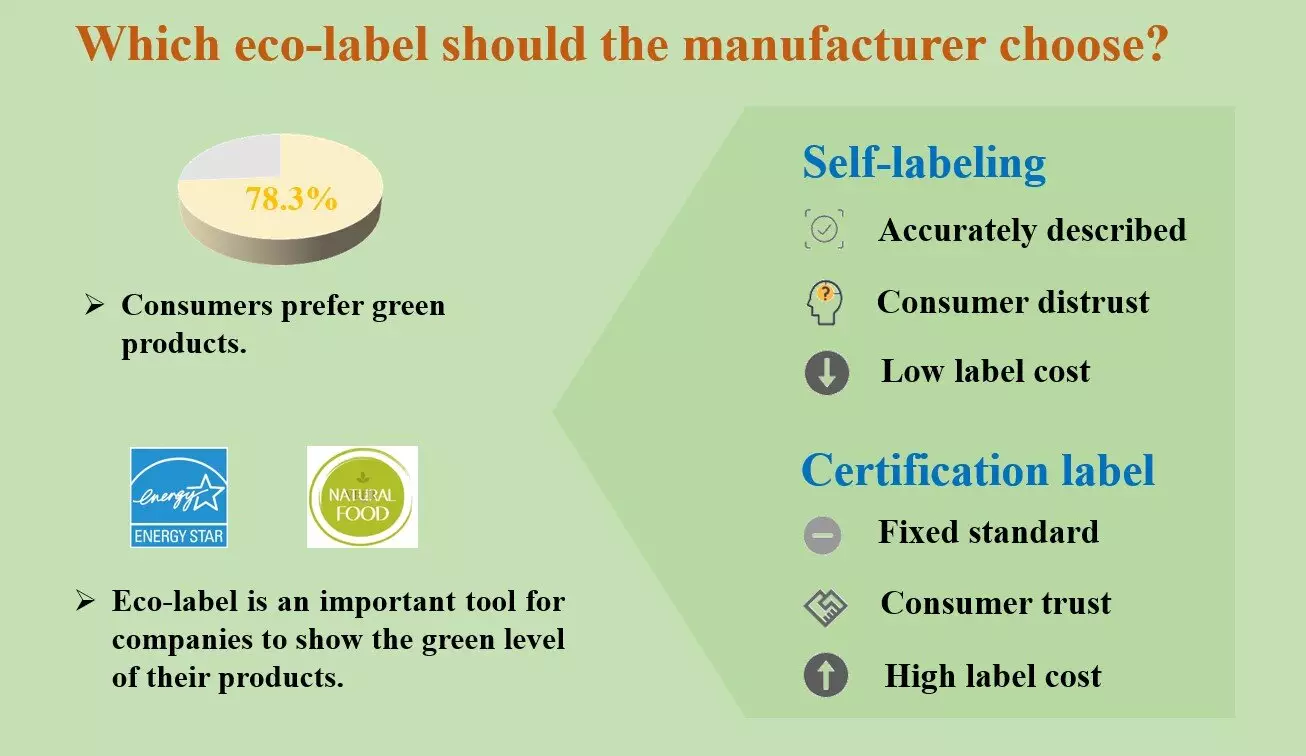In recent years, there has been a significant increase in the popularity of the green lifestyle. The 2023 China Consumption Trend Report reveals that a staggering 73.8% of customers prioritize purchasing environmentally friendly products. This shift towards sustainability has led to the widespread use of tools such as eco-labels by companies to showcase the green attributes of their products.
The Role of Eco-Labels in Green Supply Chains
Eco-labels come in different forms, including certification labels issued by third-party bodies like Energy Star and Organic Food, as well as self-labeling by manufacturers like Wal-Mart’s natural label. While certification labels are trusted by consumers, they struggle to convey the full extent of a product’s green attributes. On the other hand, self-labeling by manufacturers is often viewed with skepticism by consumers.
A research team led by Professor Gaoxiang Lou and Professor Yi-Ming Wei delved into the complexities of eco-label selection in green supply chains. Their study involved a game model with a manufacturer and supplier, where the supplier provides green raw materials and the manufacturer chooses eco-labels for products. The researchers discovered conflicting preferences in eco-label selection between upstream and downstream companies in the supply chain. While the supplier prefers certification labels, the manufacturer leans towards self-labeling despite the potential for higher social welfare under certification labels.
The research emphasizes the need for enhanced coordination among supply chain members to address these conflicting preferences in eco-label selection. Furthermore, the researchers proposed expanding certification label levels from a single level to multiple levels, such as the five levels of Cradle to Cradle Certified. This expansion provides manufacturers with more options when consumer trust in self-labeling is low and green investment difficulty is minimal.
The Impact of Consumer Preferences on Profitability
One significant finding of the research is that consumer green preferences can have adverse effects on company profitability when single-level certification labels are adopted. As consumer green preferences increase, certification agencies are likely to impose stricter standards, potentially impacting profitability. This highlights the delicate balance that companies must strike between meeting consumer demands for sustainability and maintaining financial viability.
The study sheds light on the intricate dynamics of eco-label selection in green supply chains and the importance of aligning eco-label preferences among supply chain members. The findings underscore the complexity of balancing environmental concerns with economic considerations in the pursuit of sustainability.


Leave a Reply